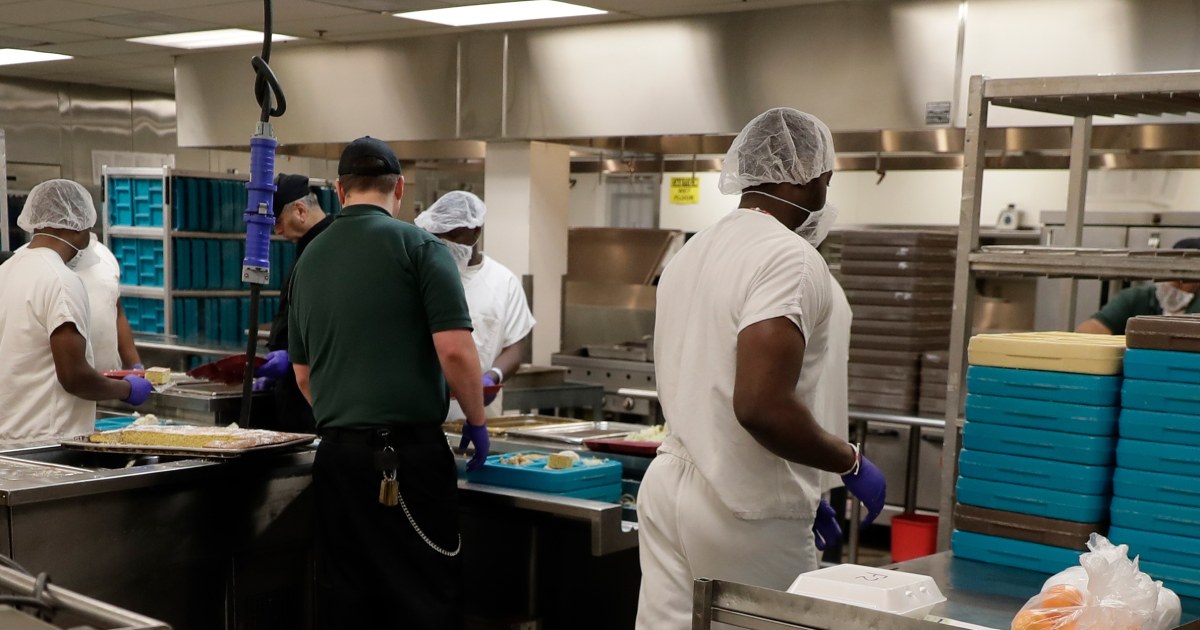Reports Surge of Hunger, Illness in Overcrowded ICE Detention Centers Nationwide
Reports Surge of Hunger, Illness in Overcrowded ICE Detention Centers Nationwide

A growing humanitarian crisis is unfolding within U.S. Immigration and Customs Enforcement (ICE) detention centers across at least seven states, with detainees and advocates reporting widespread hunger, severe food shortages, and spoiled meals. These critical issues are leading to illness and significant weight loss among those held, exacerbated by severe overcrowding. As of mid-June, ICE was detaining nearly 60,000 people, almost 45% above congressionally funded capacity, with numbers exceeding 57,000 by the week of July 7.
Complaints detail meager and unappetizing portions, such as flavorless, liquefied meat, and meals served hours late or reduced to insufficient quantities like chips and a slice of bread. An incident described as a ‘melee’ reportedly broke out in a New Jersey facility partly due to ‘paltry meals served at irregular hours.’
These systemic problems persist regardless of whether facilities are privately or government-operated. Former ICE officials attribute difficulties in maintaining adequate food supplies to unpredictable surges in detainee populations. Compounding the crisis, oversight mechanisms have been significantly weakened, with advocates pointing to recent job cuts within the Office of the Immigration Detention Ombudsman, an independent watchdog office within the Department of Homeland Security (DHS), which they claim has been largely dismantled.
Specific incidents highlight the severity of the situation: The Northwest ICE Processing Center in Tacoma, Washington, has recorded seven food violations in 2025 alone. In mid-April, 57 cases of suspected foodborne illness were reported at the facility, linked to improperly handled reheated collard greens. Detainees like Alfredo Parada Calderon describe receiving minuscule portions, while Ilia Chernov, held since July 2024, states he’s ‘getting used to the hunger’ and has lost weight. Another detainee’s wife, Rubimar, recounted her husband receiving only ‘two spoonfuls of rice’ and remaining hungry.
Despite these widespread reports, DHS spokeswoman Tricia McLaughlin denies the allegations, asserting that all detainees receive proper meals, medical treatment, and communication opportunities, with meals certified by dieticians. However, questions regarding the last assessment by an oversight body went unanswered. The American Immigration Lawyers Association (AILA) has received at least a dozen food-related complaints from across the country in the past month, with ‘not enough food’ being the common issue. The increasing number of detainees, partly fueled by the recent passage of President Trump’s ‘One Big Beautiful Bill’ allocating $45 billion for ICE detention until 2029, is expected to further strain the system, potentially funding an increase to 116,000 beds annually.
This ongoing crisis underscores urgent humanitarian and logistical challenges within the U.S. immigration detention system.
Disclaimer: This content is aggregated from public sources online. Please verify information independently. If you believe your rights have been infringed, contact us for removal.